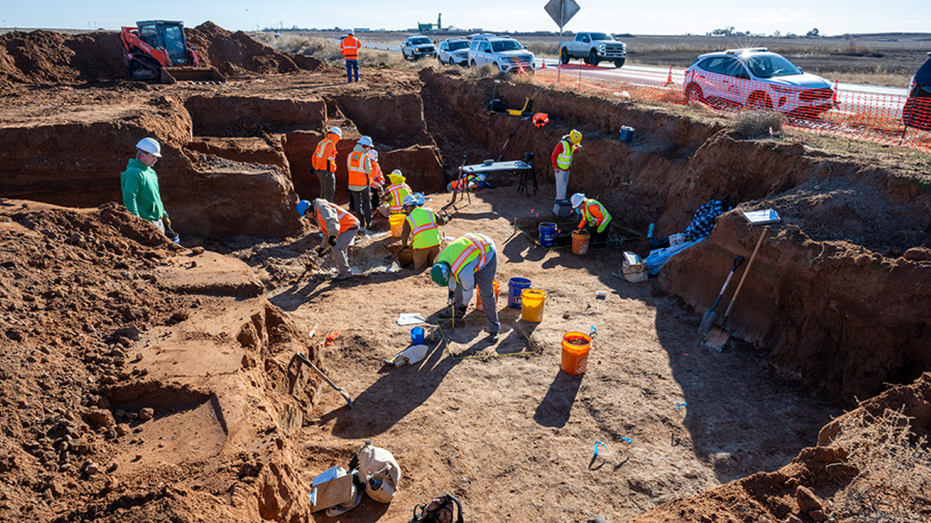- by foxnews
- 24 May 2025
Slavery and the Guardian: the ties that bind us | David Olusoga
Slavery and the Guardian: the ties that bind us | David Olusoga
- by theguardian
- 29 Mar 2023
- in news

If you know how a trick is done, if you have peered through the smoke and looked past the mirrors, if you have figured out how the illusion is accomplished, surely you can no longer be fooled by it? Surely?
The smoke-and-mirrors trick I thought I had seen through sits at the centre of British history, how it is generally taught and understood. Like all the best illusions it draws your eye in one direction, away from the details the illusionist does not want you to see. It is carefully designed to frame and delineate our understanding of the past by focusing our attention away from certain linkages and connections.
The illusion in question works like this: it marginalises the histories of slavery and empire, corralling them into separate annexes. It creates firewalls that neatly compartmentalise history, rendering almost invisible the great flows of money, raw materials, people and ideas that moved, back and forth, between distant plantations on colonial frontiers and the imperial mother country. What happened in those colonies is either ignored or dismissed as insignificant, of interest perhaps only to a few minority communities or handfuls of historical specialists, with no broader importance.
It conceals the history of slavery and the slave trade behind a distorted and exaggerated memorialisation of abolition and a select number of the leading male abolitionists. It presents the Industrial Revolution as a phenomenon that sprang whole and complete from native British soil, but is suspiciously silent about the source of much of the capital that funded it and equally mute as to where certain key industrial raw materials came from and who produced them.
Anyone who writes about slavery, or anyone who has had the misfortune of witnessing the subject being discussed on social media, will have noticed that there is never any shortage of people who will rush to remind anyone willing to listen that Britain ended the slave trade before any other nation. The fact that this claim is demonstrably untrue never seems to dim the ardour with which it is made.
On firmer historical ground the same people are equally fond of pointing out that slavery continued in the United States for three decades after it had been abolished in the British empire. It is left to historians to muddy those waters and challenge assertions of British moral superiority by reminding us that from the arrival of the first recorded shipment of enslaved Africans to the British colony of Jamestown, Virginia in 1619, right up until the American Revolution in the 1770s, American slavery was British slavery. Both profits and the taxes flowed to London, Bristol and Liverpool. Washington DC had yet to be founded.
The theory was that over an unspecified number of decades or generations, through hard work and delayed gratification, they would somehow be able to prove themselves worthy of freedom and perhaps, eventually, political rights. Even the abolitionists believed the people whose freedom they had helped win were incapable of independence or self-determination. Awkward and unpleasant historical facts like these have long been ignored by those seeking end-dates and moral closure.
For the Guardian and thousands of British institutions, the fundamental equation is this: if we can inherit wealth and benefit over centuries from compound interest, do we not also equally inherit responsibility?
After all, the tentacles of this history do not stay neatly in the past. Chattel slavery left two fundamental legacies. The first is inequality: there are the organisations and dynasties who have benefited from the wealth generated from slavery, to which we must now add the Guardian; and in contrast, the communities who have suffered and continue to suffer because of the crimes against their ancestors and the economic system built on the back of their enslavement.
The second is the idea of a hierarchy of race, and the stereotypes associated with people of African heritage that were invented and propagated by the enslavers and the lobbies that emerged around them. These ideas outlasted slavery and infected our culture, our language and, to an extent, our subconscious.
- by foxnews
- descember 09, 2016
Texas road construction unearths 'colossal' prehistoric remains of 'big ol' animals'
Archaeologists in Texas recently discovered prehistoric megafauna bones, including a giant ground sloth, during a highway project in Lubbock, according to officials.
read more


